There have been immense victories and catastrophic defeats, writes Vijay Prashad.
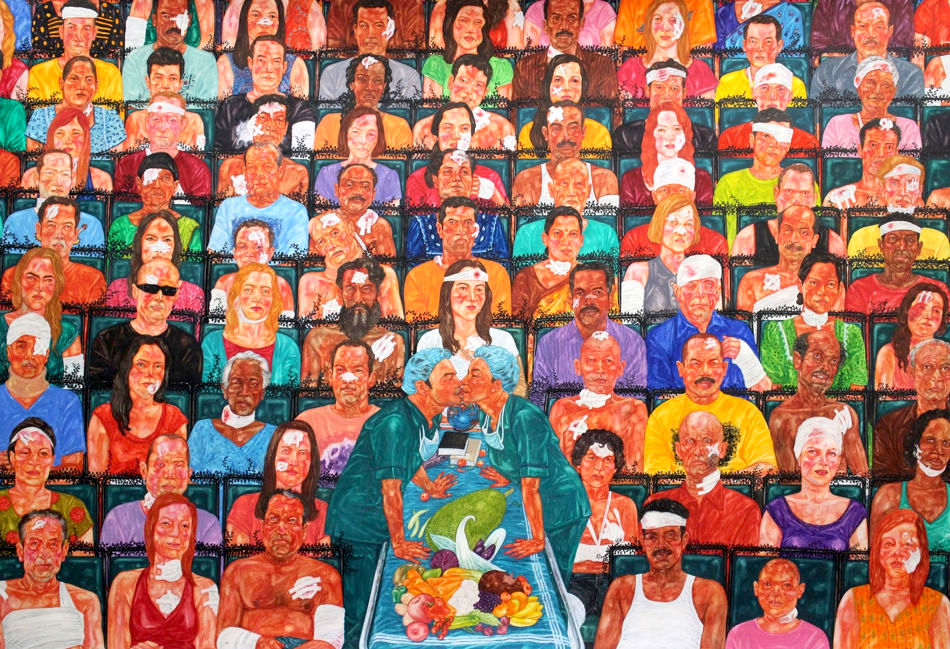
P.S. Jalaja, India, “We Surely Can Change the World, 2021.”
By Vijay Prashad
Tricontinental: Institute for Social Research
 Bittersweet is the passage of this year. There have been some immense victories and some catastrophic defeats, the most terrible being the failure of the Global North countries to adopt a democratic attitude towards confronting the Covid-19 pandemic and creating equitable access to key resources, from life-saving medical equipment to vaccines. Tragically, by the end of this pandemic, we will have learnt the Greek alphabet from the variants named after its letters (Delta, Omicron), which continue to emerge.
Bittersweet is the passage of this year. There have been some immense victories and some catastrophic defeats, the most terrible being the failure of the Global North countries to adopt a democratic attitude towards confronting the Covid-19 pandemic and creating equitable access to key resources, from life-saving medical equipment to vaccines. Tragically, by the end of this pandemic, we will have learnt the Greek alphabet from the variants named after its letters (Delta, Omicron), which continue to emerge.
Cuba leads the world with the highest vaccination rates, using its indigenous vaccines to protect its population as well as those of countries from Venezuela to Vietnam, following a long history of medical solidarity.
The countries with the lowest vaccination rates — currently led by Burundi, Democratic Republic of the Congo, Haiti, South Sudan, Chad and Yemen — are amongst the poorest in the world, reliant on foreign aid since their resources are essentially stolen, such as by being acquired at outrageously low prices by multinational companies. With 0.04 percent of Burundi’s 12 million people vaccinated as of Dec. 15, at its current rate of vaccination the country would only achieve 70 percent coverage by January 2111.
In May, Dr. Tedros Adhanom Ghebreyesus, the head of the World Health Organization, said that “the world is in vaccine apartheid.” Little has changed since then. In late November, the African Union’s vaccine delivery co-chair Dr Ayoade Alakija said of the emergence of Omicron in southern Africa, “What is going on right now is inevitable. It’s a result of the world’s failure to vaccinate in an equitable, urgent, and speedy manner. It is as a result of hoarding [vaccines] by high-income countries of the world, and quite frankly it is unacceptable.”
In mid-December, Ghebreyesus appointed Alakija as the WHO special envoy for the Access to Covid-19 Tools Accelerator. Her task is not easy, and her goal will only be met if, as she put it, “a life in Mumbai matters as much as in Brussels, if a life in São Paulo matters as much as a life in Geneva, and if a life in Harare matters as much as in Washington, D.C.”
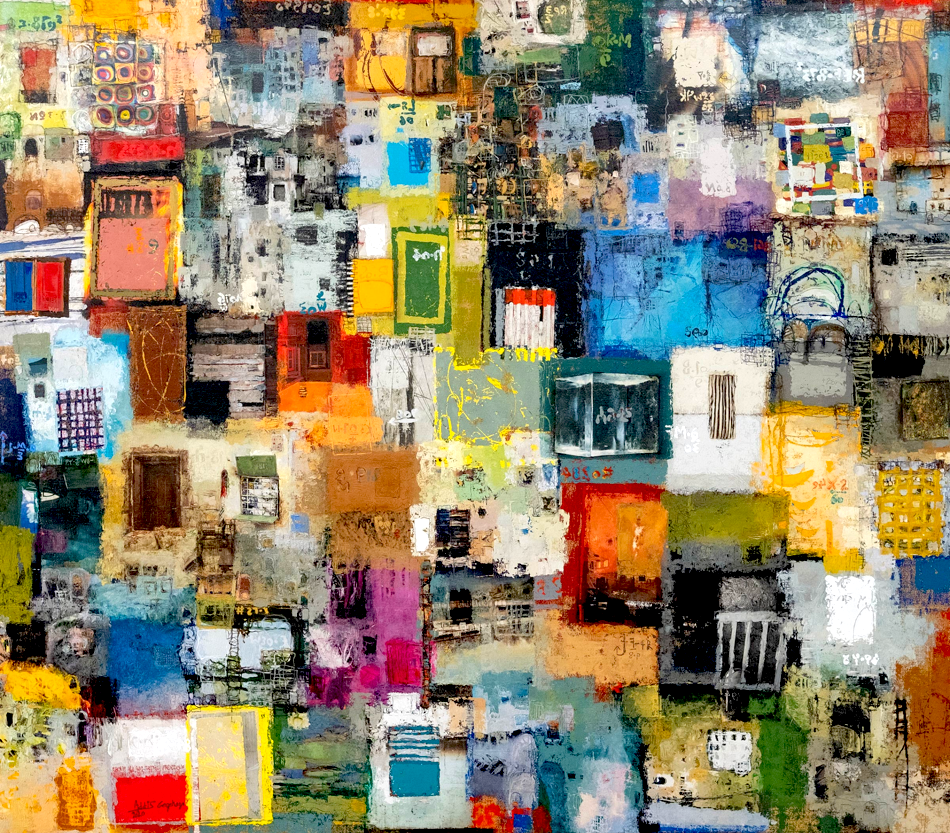
Addis Gezehagn, Ethiopia, “Floating City XVIII,” 2020.
Vaccine apartheid is a part of a broader problem of medical apartheid, one of the four apartheids of our time, the others being food apartheid, money apartheid and education apartheid.
A new report by the U.N.’s Food and Agriculture Organization says that the population of undernourished people in Africa has increased by 89.1 million since 2014, reaching 281.6 million in 2020. It is worthwhile to consider Dr. Alakija’s question about humanity, about the worth assigned to different human beings: can a life in Harare be valued as much as a life in Washington, D.C.? Can we, as a people, overcome these apartheids and solve the elementary problems that are faced by the people of our planet and end the barbarous ways in which the current economic and political system tortures humankind and nature?
Support CN’s
Winter Fund Drive!
A question like that sounds naïve to those who have forgotten what it means to believe in something — if not in the idea of humanity itself, then at least in the binding United Nations Charter (1945) and the partly binding U.N. Declaration of Human Rights (1948). The declaration calls upon us as a people to commit to upholding each other’s “inherent dignity,” a standard that has collapsed in the years since heads of governments signed onto the final text.
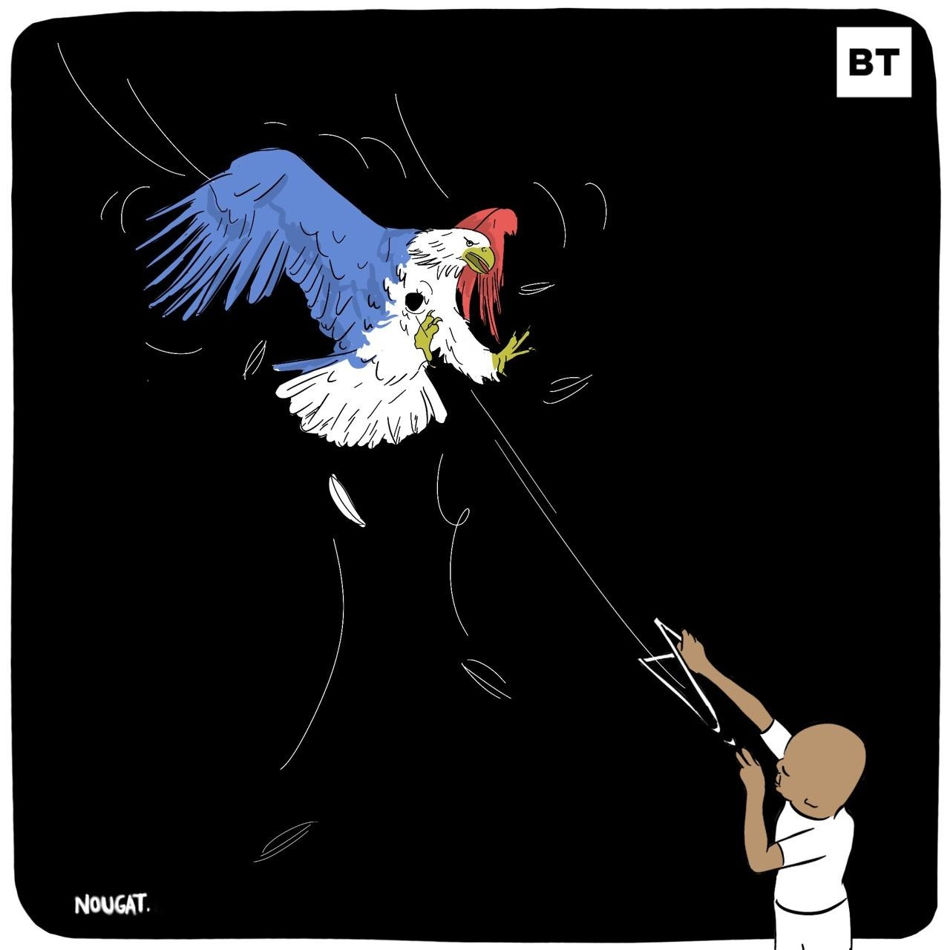
Nougat, The Sniper of Kaya, 2021. (BreakThrough News)
Despite these apartheids, several advances for humankind are worth highlighting:
- The Chinese people eradicated extreme poverty, with nearly 100 million people lifting themselves out of absolute misery over the past eight years. Our first study in the series “Studies in Socialist Construction,” entitled Serve the People: The Eradication of Extreme Poverty in China, details how this remarkable feat was achieved.
- Indian farmers bravely fought for the repeal of three laws which threatened to Uberize their working conditions, and — after a year of struggle — they prevailed. This is the most significant labor victory in many years. Our June dossier, “The Farmers’ Revolt in India,” catalogued the struggle over land in India and the farmers’ militancy over the past decade.
- Left governments came to power in Bolivia, Chile and Honduras, overturning a history of coups and regime changes in these countries that run from 1973 (Chile) to 2009 (Honduras) to 2019 (Bolivia). A year ago, our January dossier, “Twilight,” considered the erosion of U.S. control over global affairs and the emergence of a multipolar world. The failure of the United States to attain its objectives in these countries and to overthrow the Cuban Revolution and the Venezuelan revolutionary process through hybrid wars is a sign of great possibility for people in the American hemisphere. Trends show that in 2022, Luis Inacia Lula da Silva will defeat whoever is the right’s candidate in Brazil, ending the atrocity of Jair Bolsonaro’s governance. Our May dossier, “The Challenges Facing Brazil’s Left,” is a good place to read up on the political dilemmas in Latin America’s largest country.
- A rising tide of anger on the African continent against the increasing military presence of the United States and France found expression in the town of Kaya in the western part of Burkina Faso. When a French military convoy drove near the town in November, a crowd of demonstrators stopped it. At that point, the French launched a surveillance drone to monitor the crowd. Aliou Sawadogo (age 13) shot down the drone with his slingshot, “a Burkinabé David against the French Goliath,”wrote Jeune Afrique. Our July dossier, “Defending Our Sovereignty: US Military Bases in Africa and the Future of African Unity,” was co-published with the Socialist Movement of Ghana’s Research Group and tracks the growth of the Western military presence on the continent.
- We have seen strikes by care workers of all kinds across the world, from health workers to domestic workers. These workers have been hit hard by the cruelty of neoliberalism and by what we have called CoronaShock. But these workers have refused to cower, refused to surrender their dignity. Our March dossier, “Uncovering the Crisis: Care Work in the Time of Coronavirus,” provides a map of the pressures weighing on these workers and opens a window into their struggles.
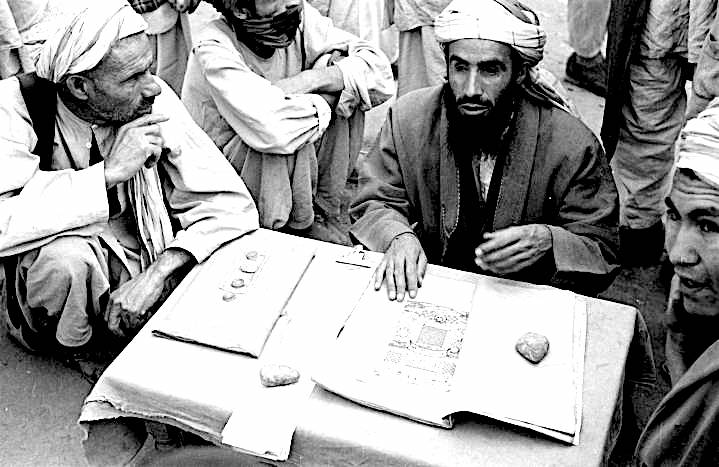
Harrison Forman, U.S., “Afghanistan, men surrounding storyteller in Kabul market, 1953.”
US Still Punishes Afghanistan
Of course, this is not an exhaustive list. These are merely some of the benchmarks of progress. Not every advance is clear-cut. After 20 years, the United States was forced to finally withdraw from Afghanistan as it lost the war to the Taliban. None of the United States’ aims for its war seem to have been attained, and yet it continues to threaten this country of close to 39 million people with starvation.
The United States has prevented Afghanistan from accessing its $9.5 billion in external reserves that sit in U.S. banks, and it has prevented Afghanistan’s government from taking its place in the U.N. system. As a consequence of the collapse of foreign aid, which accounted for 43 percent of Afghanistan’s GDP last year, the U.N. Development Program calculates that the country’s GDP will fall by 20 percent this year and then by 30 percent in subsequent years.
Meanwhile, the U.N. report estimates that by 2022, the country’s per capita income may decline to nearly half of 2012 levels. It is estimated that 97 percent of the population of Afghanistan will fall below the poverty line, with mass starvation a real possibility this winter. A life in the Wakhan Corridor is not valued as much as a life in London. The “inherent dignity” of the human being – as the U.N. Declaration puts it – is not upheld.
Rampant Inequality
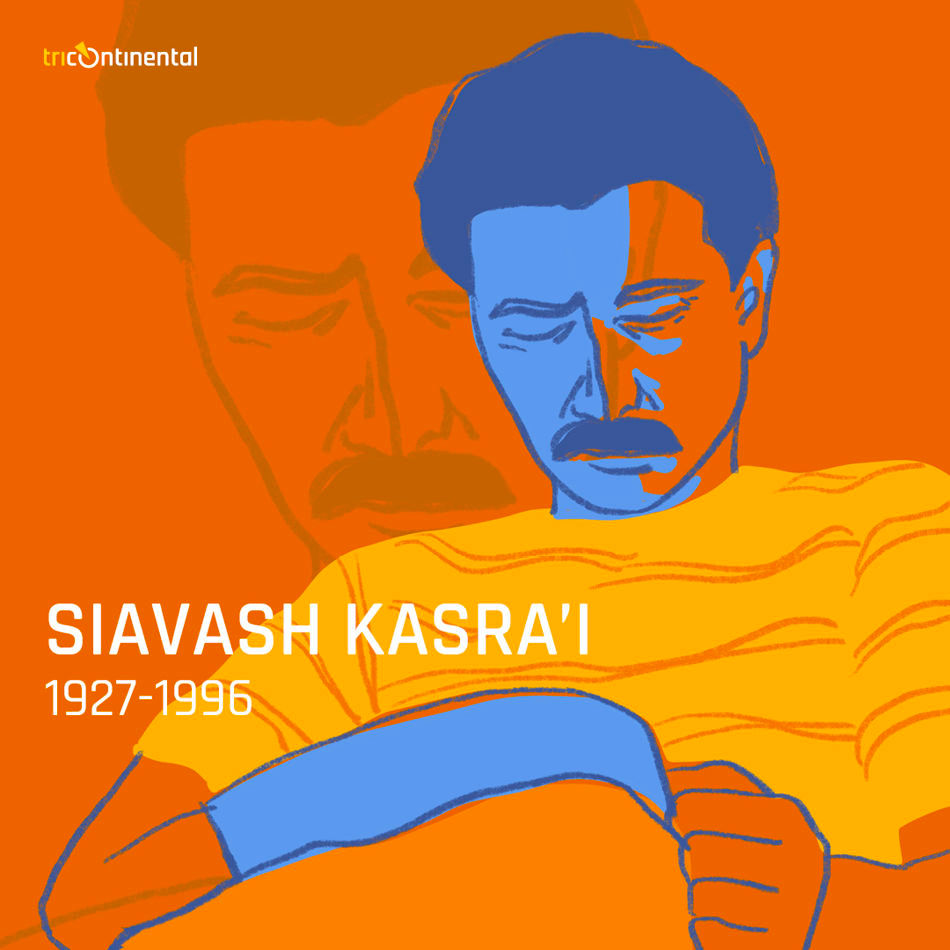
This is not merely an Afghanistan matter. The newly released World Inequality Report 2022 shows that the poorest half of the world’s people owned merely 2 percent of the total private property (business and financial assets, net of debt, real estate), while the richest 10 percent owned 76 percent of the total private property.
Gender inequality shapes these numbers, since women received barely 35 percent of labor income compared to men who received 65 percent (a slight improvement over 1990 figures, when women’s share was 31 percent). This inequality is another way of measuring the differential dignity afforded to people along class lines and along the hierarchies of gender and nationality.
In 1959, the Iranian communist poet Siavash Kasra’i wrote one of his elegies, “Arash-e Kamangir” (“Arash the Archer”). Using the popular mythology of the ancient battle fought by the heroic archer Arash to liberate his country, Kasra’i depicts the anti-imperialist struggles of his time. But the poem is not only about struggles, for we also wonder about possibilities:
I told you life is beautiful.
Told and untold, there is a lot here.
The clear sky;
The golden sun;
The flower gardens;
The boundless plains;
The flowers peeping up through the snow;
The tender swing of fish dancing in crystal of water;
The scent of rain-swept dust on the mountainside;
The sleep of wheat fields in the spring of moonlight;
To come, to go, to run;
To love;
To lament for humankind;
And to revel arm-in-arm with the crowd’s joys.
Vijay Prashad, an Indian historian, journalist and commentator, is the executive director of Tricontinental: Institute for Social Research and the chief editor of Left Word Books.
This article is from Tricontinental: Institute for Social Research.
Support CN’s
Winter Fund Drive!
Donate securely with PayPal
Or securely by credit card or check by clicking the red button:


Thank you, Vijay Prashad, for this optimistic bittersweet summary. The impoverished half of humankind could still be rescued by our arrogant plutocrats, by merely redirecting most of our fake “defense” budget to international development aid, with better results for our economy and security. But they cannot campaign without bribes, so the aid agencies must learn to make conditional political donations. And our alleged state enemies should do the same, through accepted third-state cutouts and shell corporations with noble names.
“Bittersweet is the passage of this year.” I’m grateful to Mr. Prashad for another year of his faithful bearing witness to disenfranchised of our world. I offer my own reflection on the passing of the year which I wrote for 2020.
The New Year, 2020
As I cast a shadow,
walking through a small clearing
in the forest, can I ignore
the great shadows of the oaks
and beech and hickory,
whose timeless presence
form the eternal cycle
of growth, death, and decay?
Underneath their shade
and within their shadows
lives a world of creatures so vulnerable,
yet so at one with their place.
My paltry, momentary intrusion
seems so insignificant
when viewed from their world.
Where did the arrogance arise
that gave me disrespecting dominion
over the forest and its creatures,
and by obvious extension,
all the created world?
Shall I blame a nameless god who
blessed our procreation and
and who asked us, from age to age,
to tend the earth so as to thrive
and not merely survive?
Surely, dominion does not offer
unfettered license
to exploit and rob at will
in our nanosecond of geologic time.
Alas, I am an uneasy being
in the role of dominator,
so vastly abused
by the adherents of religion and
lords of power who have molded
stewardship into blind neglect
and hyper-exploitation.
Alas, I am an unwilling citizen,
though too complicit,
for these brokers of destruction in all their forms
who rob souls of their worth
as they feed their ego, extol their pride,
and force their diabolical conformity
of power and control.
I begin each year in hope
that we shall awaken to a new history.
It begins with little assurance
of a happy new year,
but it, like all years preceding,
offers joy in simple moments
recognized through the inherent
beauty that yet survives.
Ah, this beauty is mine to cherish,
and not mine to destroy.
And who, what is behind this uninterrupted global system of Apartheids – “the barbarous ways in which the current economic and political system tortures humankind and nature?”
Naming names is a good idea!
Here’s a sinister screenplay for an envisioned satirical movie for release in the new year, wherein the villain, in the opening scenes is murdered while in a highly guarded isolation cell, in the ‘supermax’ prison he has been confined to, in New York City, for a little over one week, while awaiting his day in court.
The powers-that-be, put this person’s sudden death down to suicide. The risk of affronting the reputations of global ‘leaders’ by the possible exposure of the names of the topmost echelons of these elites; as actively engaging in the nefarious deeds of the accused, thereby, is immediately cancelled!
His case could never be permitted to come to trial, especially in front of a jury of those making the claims against the accused, in a trial, in open court proceedings for then witnesses would speak publicly against these select ‘royals’ of society, accused of engaging in these covert, sordid social activities.
Their names would be tarnished forever, and this is not permissible in ‘civilized’ society.
Cut to the present: Now there’s a former – now disgraced, U.K. socialite, named Ghislaine Maxwell, imprisoned in the same country as her former accomplice, awaiting sentencing, after her conviction.
Trial over, successfully concluded! No longer an immediate threat to the rulers; no need for her to suddenly die in prison.
Here’s what happens in the closing scene: She is exchanged, with the British, for a journalist, international publisher of Australian citizenship, who has wrongfully been persecuted for more than a decade, almost to death, now illegally being held in Britain’s most notorious maximum-security prison, for more than two years, on ‘Trumped’ up charges, on behalf of this hegemonic, vengeful, rapacious, global plundering state.
This Australian journalist has already proven the case against the hegemon state, having presented the diverse, literally documented facts of truth to the jury of his peers – us, the general populations of the world.
Julian Assange’s show trial will never be permitted a run, in a free and open court, for the historical – long-established facts are overwhelmingly against the terror state. For any person to successfully attempt to buck the long-established plutocratic anti-democratic, neoliberal power structure, will never be tolerated. The costs to humanity, be damned!
The successful maintenance of Apartheids the world over, in all their still current, diverse aspects, is what continues to keep us at each other’s throats, serving the interests of the masters of the arts of deceit. It is but one of the levers of the systemic anti-democratic command-and-control structure.